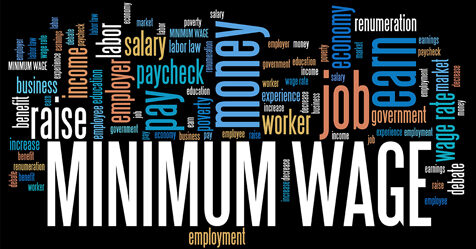When Theo Epstein arrived in Chicago six years ago to revamp Major League Baseball’s Chicago Cubs, the first thing he did was review the organization’s operations and determine where there were opportunities to make improvements. After all, the Cubbies had not won a World Series in more than 100 years, had 101 losses in 2012, and a turnaround did not appear to be coming any time soon.
But in 2016, the Cubbies had 101 victories and went on to win the World Series. According to Epstein, in order to make a difference, he had to build “a foundation of sustained success,” a comment rarely heard at Wrigley Field.
He addressed the “curse” that many on the team, as well as their fans, have long believed. “Epstein’s most straightforward comment at the outset of his presidency was that the Cubs had only themselves to blame for their inadequacies, not any curses,” wrote Chicago Tribune sports journalist Paul Sullivan. “[Epstein] laid out a game plan and stuck to it.”
The rest is history.
Replicating Theo’s Model
When it comes to sustainability, what Epstein accomplished with the Cubs can be replicated in the jansan industry by remembering how a well thought-out game plan can have long-term success.
Businesses with successful sustainability initiatives form winning teams, have strategic game plans, and eventually enjoy the fruits of their efforts. This includes developing leaner, more efficient, and more cost-effective business operations; attracting and retaining higher-caliber employees with better wages and benefits; and having a commitment to the community and the world.
Leaner Operations
In many cases, a jansan company implementing sustainability initiatives may need to invest in new equipment as well as new manufacturing or operating procedures. This typically costs money, and when businesses in our industry invest in new equipment, they usually want to see the financial benefits quickly.
This immediate return on investment may not happen, so we have to develop an entirely new game plan when it comes to costs and savings. In most cases, the game plan may require a company to do some reinvention. This means understanding that many of the ways organizations have operated for decades are simply not going to work in a world with limitations on resources and the need to recycle and reuse whenever and wherever possible.
For example, let’s say our company makes paper products, such as toilet paper. For decades, we have had few concerns about cutting down trees in order to get the finest and freshest fibers needed to make soft toilet paper. However, this is no longer a sustainable business model, as it is costly and makes toilet paper too expensive for the customer. Plus, with more and more managed forests around the globe, there may not be access to the number of trees necessary for our business model to succeed.
In this scenario, our paper company must wean itself from depending on natural resources. Our team must innovate and develop new technologies and manufacturing methods that produce toilet paper that satisfies customers, is cost effective, and protects our business from diminishing natural resources.
Employee Investments
For many jansan organizations, a winning strategy may also require significant reinvention when it comes to personnel.
While there may be exceptions, most employers treat their staff fairly. But as an industry, we have to do more and take a longer view of our dealings with our workers for the betterment of our companies and our entire industry.
We in the jansan industry need a reliable, well-trained workforce, and in many situations, this means we may need to invest in our people, starting with wages. Several business leaders in many industries oppose raising the minimum wage. For example, some say if we raise the minimum wage, we will have to raise the prices for our goods and services, which eventually will price us out of the market.
This might be true. But if higher wages result in being able to attract and retain a more qualified and skilled workforce, worker productivity will likely increase, turnover will decrease, less new-worker training will be required, and our products and services will meet consistent customer satisfaction levels. Furthermore, do we really think people will want to work for our companies in the coming years at minimum or below current minimum wages?
You may also want to consider healthcare and advancement opportunities within the company. Benefits and opportunities create a more responsible, reliable, and hardworking workforce because employees make a commitment to their employers
Commitment
Enjoying the benefits of sustainability requires development of a winning game plan, just like the ones we see in the sports world.
But like these winning sports teams, we also need leadership from within our industry. Sustainability is a commitment that comes from the top down and that’s when its many benefits are realized.



